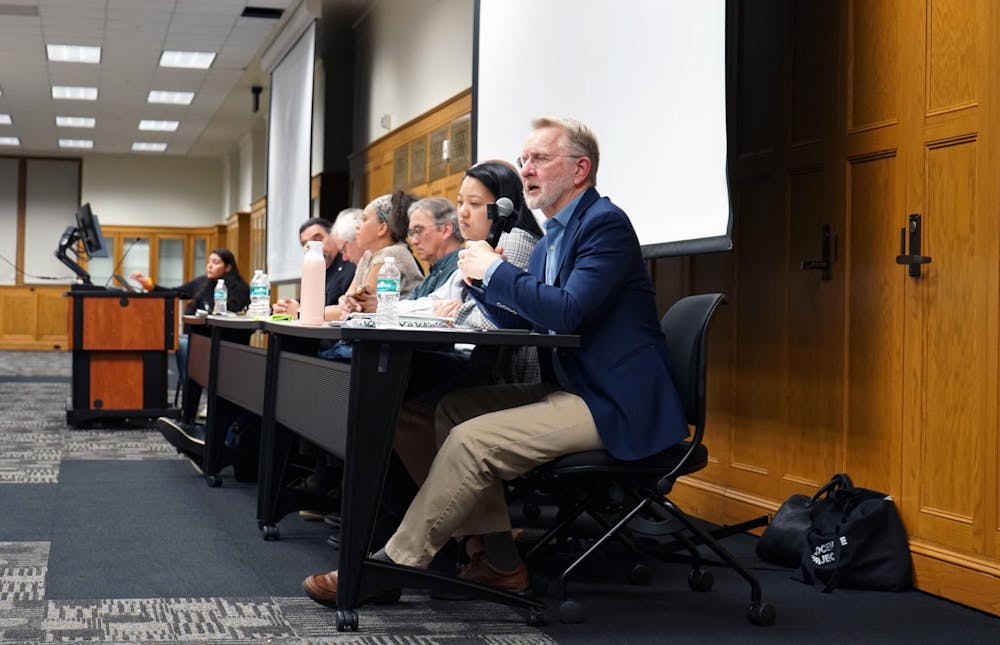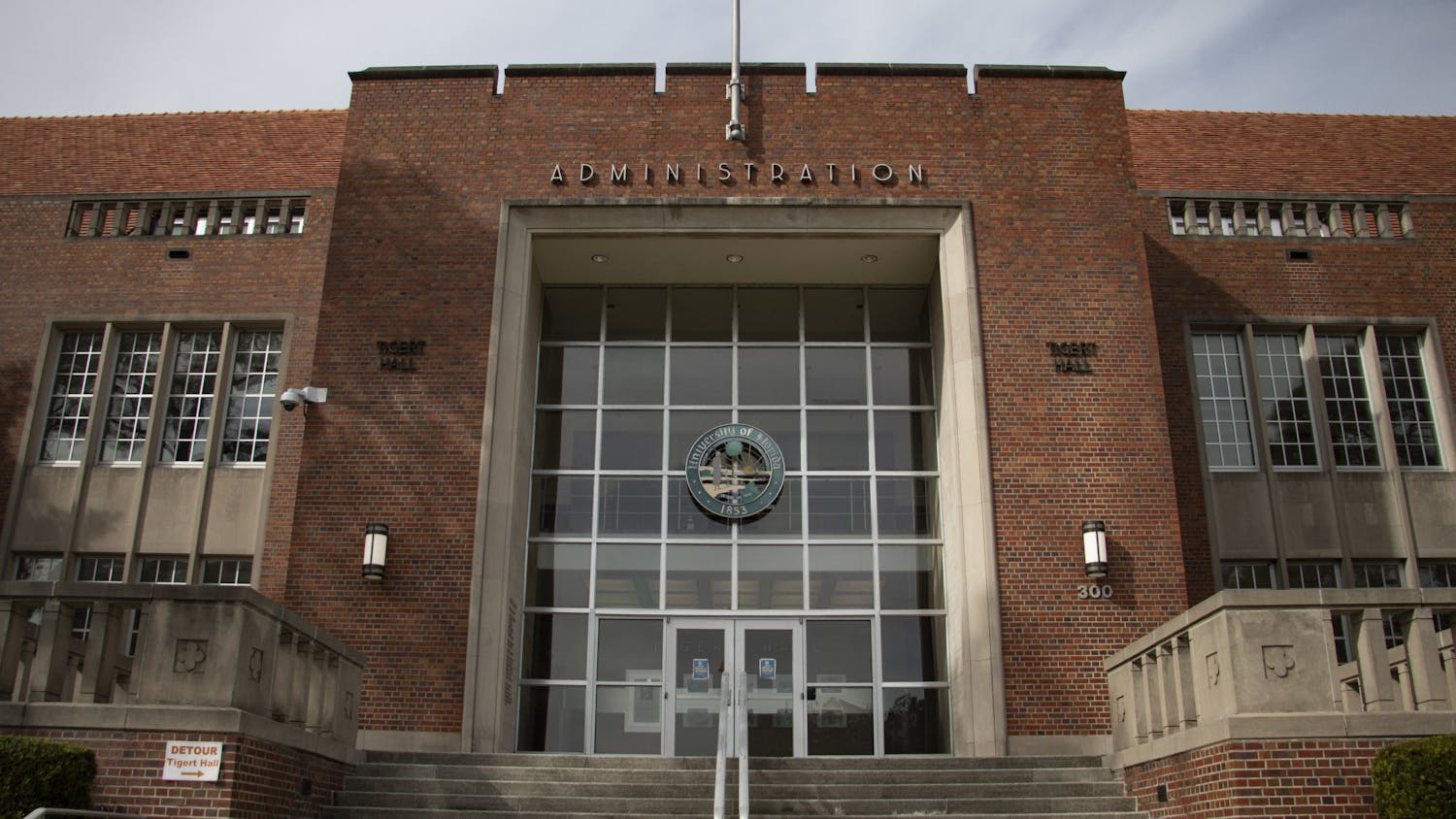Several weeks ago, Natalia Guerrero read a timeline of UF history published by The Presidential Task Force on African American and Native American History in an effort to understand the true history of the university she attended.
Each line she read was like a continual punch to the gut, the 30-year-old astronomy doctoral candidate said.
“There's so much packed into it,” Guerrero said. “I just couldn't believe how much has gone on.”
Guerrero was one attendee of the Jan. 17 panel reviewing the Presidential Task Force on African American and Native American History’s report detailing new research and recounting a more complete version of UF’s history concerning African Americans and Native Americans.
The task force originally published the “Report on African American and Native American History and the University of Florida” in April. Nine months later, its authors discussed their findings in a panel presentation to a live audience of about 50.
The report, commissioned by UF President Kent Fuchs to investigate issues of race following the 2020 murder of George Floyd, revealed a long history of racism at UF and looked at the university’s efforts to become more diverse.
Conducted through the Samuel Proctor Oral History Program, the panel featured seven of the 10 members of the task force. The group of UF faculty answered student and audience questions regarding their research and potential effects of the report’s release.
At 110 total pages, the report first examines UF’s history with African Americans from 1853 to the present, then moves to UF’s history regarding Native Americans dating further back to issues of land ownership in pre-statehood Florida.
The role of student activism was a consistent theme throughout the panel discussion.
Panelists, including archaeology professor Kenneth Sassaman, repeated changes to campus — like updates to the department of American Indian and Indigenous studies — wouldn’t have come without advocacy from student groups. The same went for the report, he said.
“If it weren’t for the student members of this committee, I'm not sure that this would have been finished by now,” Sassaman said. “They really carried a lot of the weight and pushed it with their high energy.”
The report shows steady growth in Black student enrollment at UF from the mid-1960s to 2007. After that, it dropped by 22.1% over the years leading to 2020 — by which time Black students made up about 5.7% of UF undergraduates in 2020, according to UF Institutional Planning and Research.
By comparison, Black students make up 12.7% of all 2019 undergraduates nationwide, according to the Postsecondary National Policy Institute; Black people make up 17% of Florida’s population, according to the U.S. Census Bureau.
Meanwhile, the total number of full-time Black faculty increased 37% from 2015 to 2020, according to the report. Black faculty made up about 4.5% of all UF faculty in 2020, according to UF Institutional Planning and Research.
The report goes on to suggest UF be more proactive in its recruitment of Black faculty, despite panelists’ comments that they were instructed by UF administration not to make policy recommendations.
With this restriction in mind, the authors intended to show the nuance of UF’s complicated history, said David Canton, director of the department of African American studies and co-author of the report.
“History is what you want to hear and what you don’t want to hear at the same time,” Canton said during the panel. “Of course, we want to hear how UF has made all this progress. What you don’t want to hear is there’s still work to be done.”
The report also contains a list of 41 indigenous lands either ceded to or seized by the American government to fund land-grant universities, including UF, and the lands’ costs at the time.
But the report’s authors made clear during the panel that this is only the beginning of research on topics of diversity.
Hazel Levy, assistant instructional professor of genetics and co-author, noted the report was done in addition to the panel members’ regular workload.
“This report should serve as a foundation,” Levy said. “But it's not the report we would have written with the resources that I think we should have been allocated.”
Winfred Phillips, Fuchs’ executive chief of staff, chaired the committee. Without direct administrative oversight, the report may have been more focused on social movements, Levy said.
For Donovan Carter, a graduate researcher at the SPOHP and student moderator at the panel, the live presentation was an opportunity for the university community to hear about the research directly from those who conducted it, he said.
“Rather than just publish the report, we want people to know how much work and effort and time [it took] and increase the value of that report,” Carter said.
Contact Alissa Gary at agary@alligator.org. Follow her on Twitter @AlissaGary1.

Alissa is a sophomore journalism major and University Editor at The Alligator. She has previously covered student government, university administration and K-12 education. In her free time, she enjoys showing photos of her cats to strangers.






